Photo with Christopher Sullivan & Cyanne Loyle (photograph by Claudine Gossett)
Current Graduate Students (In order of expected completion)
Over time, I have had the honor to work with some truly amazing people, across a variety of institutional contexts. Invariably, I learn much more from them than they probably get from me. As I view them all as a rocket or arrow fired out into the world (after our exchange), I share with you a little bit about some of them. Enjoy.
Meg Burt
Some Former Graduate Students/New Colleagues
(with recent graduates first)
Kiela Crabtree

Kiela Crabtree was a PhD Candidate in Political Science at the University of Michigan. She has accepted a job at Emory University. Kiela's research focuses on the impact of violence -- specifically racially-targeted violence -- on American political participation and public opinion. Her dissertation uses an original data collection effort, local-level observational data, and a series of survey experiments to investigate where racially-targeted violence has occurred, how the targeted respond, and why those responses are observed. She also considers the political legacies of conflict in the United States, with emphasis on the dynamics of social identity and hierarchy. Kiela has been a visiting researcher at the Peace Research Institute in Oslo (PRIO), and her work has been supported by awards through the Center for Political Studies, as well as the American Political Science Association. You can learn more about her research and working projects here.
Anita Ravishankar

Anita Ravishankar was a PhD student at the University of Michigan in World Politics and Public Policy, where she studies the costs of political violence, particularly with respect to civilians’ trust in state institutions. After graduating, Anita first ran the research program at D.C. Police Department. She now is the Director of Criminal Justice Research at Arnold Futures. Anita's research explores how variation in the type of violence, level of exposure to violence, and proportionality of state/challenger interactions shape both civilians' attitudes toward the state and their political behavior. She is also interested in understanding how these factors affect the long-term legitimacy of the state. Before coming to Michigan, Anita worked at CNA, a research institute in Arlington, VA, where she conducted research, program evaluation, and policy and strategy development in support of national preparedness, emergency management, and homeland security initiatives. She holds a B.S. in Science, Technology, and International Security from Georgetown University.
Thomas O'Mealia

Tom O'Mealia was a PhD student in Political Science at the University of Michigan. His research spans international relations and comparative politics. He studies the internal security apparatus, civil-military relations, and political violence in the Central and East African contexts. Tom has conducted field research in the Democratic Republic of Congo and Kenya. You can find his webpage here and email him at [email protected].
Adrian Arellano
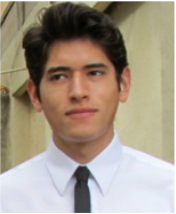
Adrian Arellano was a PhD student at the University of Michigan whose broad interests include rebel groups fragmentation, dynamic interaction between dissident groups and the state during conflict and peace, and political violence. Adrian is currently a Research Officer within the Socioeconomics of Islamist Radicalization in the West project at the London School of Economics. He is interested in rebel group fragmentation during conflict from an organizational and selective theory perceptive. By focusing on the institutional structure of rebel groups he hopes to understand different observable behaviors such as splintering, varying degrees of political violence, and rebel on rebel violence. You can reach him at [email protected].
Charles Crabtree

Charles' general interest in repression and discrimination has lead to his current research agenda, which centers on the politics of policing. He currently is an Assistant Professor at Dartmouth University. In a series of papers, he examines discrimination in police recruitment and oversight, the political effects of policing, and the effectiveness of domestic security strategies. His desire to better understand the politics of policing motivated his dissertation, a book-length project entitled Unequal Response: A Comparative Study of Police Violence. At the core of this project is a novel theory about public-led discriminatory policing informed, in part, by interviews conducted with domestic security agents. To test this theory, he uses a variety of approaches including machine learning, audit and survey experiments, participant observation, and interviews with domestic security agents. To date, he has published work on diverse topics in the British Journal of Political Science, Conflict Management and Peace Science, Electoral Studies, International Studies Quarterly, the Journal of Experimental Political Science, the Journal of Peace Research, Political Research Quarterly, Political Analysis, Political Science Research and Methods, PS: Political Science & Politics, Research & Politics, State Politics & Policy Quarterly, and in several other interdisciplinary, sociology, and psychology journals.
Meredith Blank
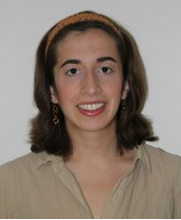
Meredith Blank finished her PhD at the University of Michigan. She currently is a researcher with the federal government. Meredith was interested in sub-national conflict and violence and security organizations. She looked at, what influences the formation of various types of security organizations during state creation? And once formed, how do certain attributes and mixtures of these security organizations (formal/informal, centralized/non-centralized) impact the variance and expectations of human right abuses within the state.
Priyamvada Trivedi

Professor Priyamvada Trivedi finished her PhD in Political Science from the University of Michigan in May 2018. She initially joined Trivedi Centre for Political Data at Ashoka University as its Associate Director and then moved into the political science department as an Assistant Professor. She completed her BS in Electrical Engineering from Purdue in 2009 after which she spent 3 years in the Sociology Department at the University of Notre Dame before moving to Michigan in 2012. She is interested in understanding the dynamics of political and social change using different forms of evidence such as government sources to newspapers to NGO reports and survey data along with learning and applying both qualitative and quantitative methods. For more information see: www.priyamtrivedi.in.
Jessica Brandwein

Jessica Brandwein was a doctoral student in the Peace Studies and Political Science departments at the University of Notre Dame. She earned her B.A. in Mathematics and History from Northwestern University. Before beginning her graduate work, Jessica worked for the Genocide Intervention Network in Washington, D.C. as a lobbyist and an advocacy organizer with a focus on ending state-sponsored violence in Darfur, Sudan. Her dissertation research explores how third-party interventions affect a government's decision to escalate or de-escalate its use of political violence against its citizens. Additionally, she is interested in how the strategic killing of civilians influences the outcome and duration of civil wars; the impact of the International Criminal Court on reconciliation and transitional justice processes; and the promotion and measurement of positive peace.
Christopher Sullivan
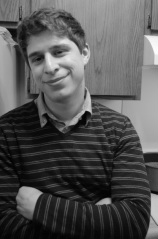
Professor Christopher M. Sullivan is currently a post-doctoral fellow in the Department of Christopher M. Sullivan is Assistant Professor of Political Science at Louisiana State University. Christopher received his PhD in Political Science from the University of Michigan (2014). Prior to coming to LSU, he completed a Predoc at Yale’s Program on Order, Conflict, and Violence and a Postdoc at NYU’s Center for Human Rights and Global Justice. His training garnered graduate degrees from the University of Notre Dame, the University of Maryland, and Vrije Univseriteit, Amsterdam. Sullivan obtained his B.A. in Political Science from Binghamton University. For 2018, he is a Visiting Scholar at the Stone Center for Latin American Studies.
At present, three projects are listed on his agenda:
1) Political Order and Development – How does political order evolve across space and time? Why do violent conflicts erupt, escalate, or settle? What can be done to tame violence and improve the lives of the worlds most vulnerable populations? In a series of articles as well as in his book manuscript (Why Not Rebel? The Microfoundations of Political Order), Sullivan considers the complex relationship between coercion, contention, and political institutions.
2) Dynamics of Violence – Why do governments violate human rights? What explains the targeting, severity, and legacy of political violence? Through a combination of cross-national and sub-national analyses, Sullivan explores the domestic and international causes of political violence. He currently serves as co-Director of the Northern Ireland Research Initiative (NIRI), a multi-sourced investigation conflict victimization funded by the National Science Foundation.
3) The Archives of Political Conflict – The memos, investigative reports, communiqués, and other documents produced by government forces are inherent to order and conflict; they serve as the primary conduits through which information is acquired, accumulated, and distributed. With an eye towards integrating qualitative and quantitative methodology, Sullivan generates and analyzes data from conflict archives across the globe. In 2018, Sullivan co-edited a special issue on the conflict archives for the Journal of Peace Research.
Javier Osorio
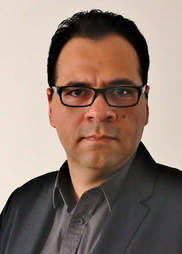
Professor Javier Osorio was a PhD student in the Department of Political Science at the University of Notre Dame. He recently accepted a tenure-track position at the University of Arizona. Previously, he was at the City University of New York - John Jay.
Javier's research interests focus on understanding the micro-foundations and dynamics of political and criminal violence in Latin America. Why are some countries ravaged by high levels of organized crime violence? What are the paths for building safer, more peaceful and democratic countries? These are the core questions guiding my research interests. He addresses this agenda with a solid quantitative toolset including natural language processing, quasi-experimental and experimental techniques, geographic information systems, and big data analytics. Javier's research focuses on Latin America, with a particular emphasis on Mexico, Colombia, El Salvador, Guatemala, and Honduras. He is the Founder of the Academy for Security Analysis, a project supported by the United States Agency for International Development (USAID) - El Salvador aiming at building regional institutional capacity on citizen security policies, promoting evidence-based public policies, and disseminating best practices in the Northern Triangle region of Central America. He is also part of a research team based at the University of Texas-Dallas working on the next generation of automated event coding in multiple languages. This project is supported by the National Science Foundation. For further information visit http://www.javierosorio.net.
David Armstrong
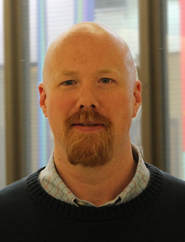
David Armstrong finished at the University of Maryland with his PhD a few years back. He is currently the Canada Research Chair in Political Methodology in Political Science and Statistics at Western University in London, Ontario. Dave specializes in statistics and data analysis. His research spans topics from measurement and latent trait estimation to the role of non-linearity and data mining techniques in statistical models. Currently, he lists three projects that he is working on:
1. Non-linearity in Statistical Models. Observational studies use control variables to eliminate alternative explanations of the phenomenon under consideration. Often times, we treat control variables with less care and rigor in our model specifications than we do our own variables of interest. This project considers how much attention we should pay to non-linearity in this context and what difference it might make for the effect sizes on variables of theoretical importance.
2. The Costs of Contention. The Costs of Contention project seeks to understand how diverse forms of political conflict and violence (e.g. genocide, civil war, human rights violations) influence diverse political and economic outcomes (e.g., the type of political system, mass participation, economic development, happiness and foreign direct investment).
Previous research relevant to this topic has been limited to studying only specific forms of conflict and violence as well as specific outcomes. The current project therefore opens up these categories to achieve a comprehensive analysis of the real costs of contention. Additionally, the project seeks to explore not only global patterns but also sub-national and individual level patterns. The research effort is complex in that it involves using pre-existing data in new ways, as well as collecting and analyzing new data across time and at multiple levels of analysis (i.e., the globe, specific country cases, and individual level data from specifically-targeted matched locations within the cases). The project will be attentive to numerous potential biases: e.g., gender differences in costs of contention, and the existence of missing data. The information emerging from this research will have significant potential use. Most importantly, project outputs will provide evidence-based early warning of likely challenges for recovery and development efforts in the post-conflict period, for policy-makers, practitioners, and other stakeholders engaged in recovery efforts. This can significantly improve the lives of those who would otherwise suffer without informed policy options.
3. Visualization of Pairwise Comparisons. There are many situations where we want to compare many pairs of statistical estimates. For example, when a categorical independent variable is used in a regression model or when the outcome is a categorical variable with more than two values. In these situations, there are many alternatives for visualizing these comparisons. Each method seems to arise in virtual isolation (not acknowledging that others exist) which has led to a situation where no set of best practices exist. This project looks to figure out what best practices ought to be and extend some of these ideas to dynamic settings through Shiny and D3.js applications.
You can find out more about Dave here.
Cyanne E. Loyle
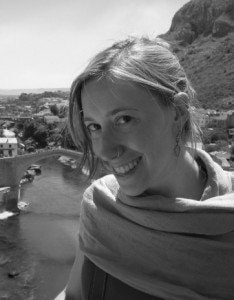
Professor Cyanne Loyle is an Associate Professor in the Department of Political Science at Penn State University and a Global Fellow at the Peace Research Institute Oslo (PRIO). She received her Ph.D. from the University of Maryland and a MA in Holocaust and Genocide Studies from Stockton University. Her research is motivated by a desire to better understand and contribute to the prevention of violent conflict and the violation of human rights. I do this through assessing the intersection of violent behavior, political institutions, and political participation.
Cyanne's current work focuses on transitional justice adopted both during and after armed conflict. She studies the ways that justice processes can be used for good or for evil through political consolidation, political exclusion, social reconciliation, narrative construction, and for economic gain. She has looked at these issues in East Africa, primarily Rwanda and Uganda. To explore justice processes in post-conflict democracies, she has conducted field work in Northern Ireland, Turkey, and Nepal.
Cyanne currently serves as the co-Director of the Northern Ireland Research Initiative (NIRI) funded by the National Science Foundation (SES# 1565409). For the 2018-2020 AY, she is the interim director of the PELIO program at the Ostrom Workshop at Indiana University running working groups on "Ungoverned Spaces" and "Non-State Actor Governance". For the 2017-18 AY, Cyanne has an NSF workshop grant with Kathleen Cunningham to explore rebel group legitimacy and organizational structures. This project builds off work she completed last year as the Leonard and Sophie Davis Fellow for the Prevention of Genocide, Simon-Skjodt Center for the Prevention of Genocide at the United States Holocaust Memorial Museum.
Additional information can be found on her personal website: www.cyanneloyle.com.
Elizabeth Blakey

Professor Elizabeth Blakey holds a Ph.D. in sociology from the University of Notre Dame and a J.D. (law degree) from Loyola Law School Los Angeles. She is an active member of the California Bar. She practiced intellectual property and media law in Beverly Hills and Los Angeles for the law firms Blakely, Sokoloff, Taylor and Zafman; Cooper Epstein and Hurewitz (now Isaacman, Kaufman and Painter) and Hecker and Harriman (now Hecker Law Group). While working for these boutique law firms, Blakey represented such clients as Apple Computer, Pixar Animation Studios, Jackie Joyner Kersee, Ray Liotta, Rodeo Drive Association, Flynt Publications, CAA and Netscape. More recently, she has worked as a pro bono attorney representing Occupy Fresno -- successfully obtaining one of the few First Amendment injunctions entered against the government for an Occupy protest group. Her journalism experience includes two years as a website editor for the E-Commerce Times , where she covered business and technology news; and work as a staff writer and freelance writer for the traditional newspaper the South Bend Tribune. Her research focuses on the First Amendment, civil liberties, copyrights, communications technology and the mediated public sphere. Her scholarship has been published in Law and Social Inquiry (American Bar Foundation), Mobilizing Ideas, Cinematic Sociology and the Loyola Entertainment Law Review.
